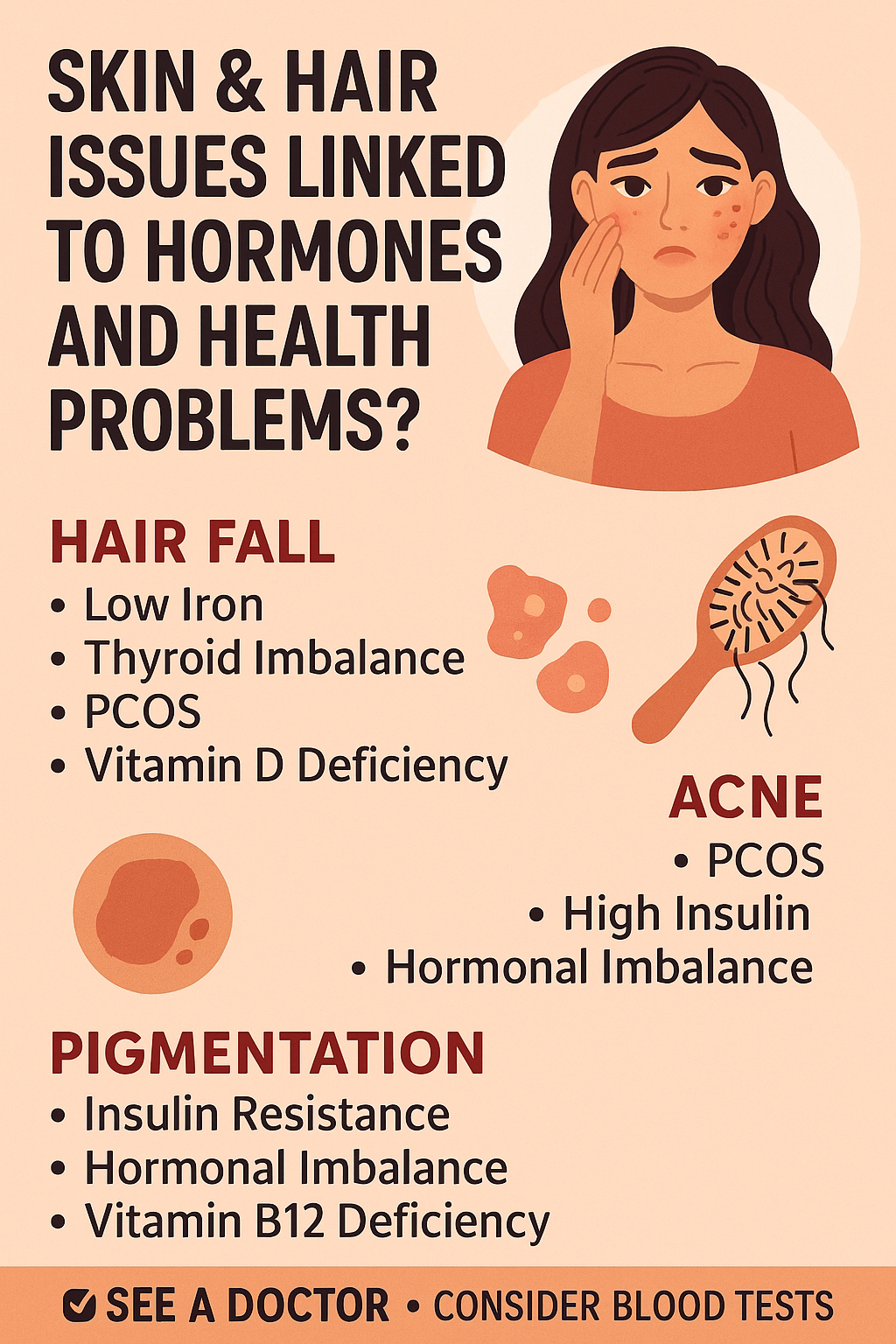"PCOS: Symptoms, Causes, Tests & What Every Woman Should Know"
PCOS
💡 Introduction:
Polycystic Ovary Syndrome (PCOS) is not just a hormonal issue — it's a lifestyle-linked, multi-system condition that affects nearly 1 in 5 women in India.
As a certified lab technician and phlebotomist, I’ve seen how blood test reports often reveal the story before the body does.
Understanding PCOS is the first step toward managing it — and this post will guide you through its symptoms, causes, essential tests, and what you can do about it.
⚠️ What Is PCOS?
PCOS is a hormonal disorder where the ovaries produce excessive male hormones (androgens), often leading to irregular periods, weight gain, acne, and even infertility.
Many women with PCOS have small, fluid-filled cysts in their ovaries — but not all. PCOS can exist without cysts, too.
🔍 Common Symptoms:
Irregular or missed periods
Excessive hair growth (especially on face, chest)
Acne or oily skin
Sudden weight gain (especially around the belly)
Hair thinning or scalp hair loss
Dark patches on skin (especially neck, underarms)
Difficulty in conceiving
Mood swings or depression
🧬 What Causes PCOS?
While the exact cause is unknown, research shows strong links to:
Insulin resistance
Genetics (runs in families)
Inflammation
Sedentary lifestyle & diet
🧪 Important Blood Tests for PCOS Diagnosis:
🩸 1. Hormonal Panel:
Test Purpose
LH (Luteinizing Hormone) Often elevated in PCOS
FSH (Follicle Stimulating Hormone) Helps assess ovulation
Testosterone (Total/Free) Detects excess male hormone
DHEAS Checks adrenal gland androgen level
Prolactin Rules out other causes of irregular periods
Estradiol Estrogen level monitoring
Progesterone Low during second half of cycle in PCOS
💉 2. Metabolic Tests:
Test Use
Fasting Blood Sugar Detects insulin resistance or diabetes
HbA1c 3-month blood sugar average
Insulin (Fasting) Indicates insulin resistance
🧪 3. Thyroid Panel:
Test Reason
TSH, T3, T4 To rule out thyroid disorders (which mimic PCOS symptoms)
🩺 4. Ultrasound (Pelvic USG):
To check for ovarian cysts and monitor size of ovaries.
📋 When Should You Get Tested?
If you have irregular periods (missed, very late, or frequent)
Sudden acne, weight gain, or hair fall
Unusual facial/body hair
If you’re trying to conceive without success
Family history of PCOS or diabetes
🧠 Final Thoughts:
PCOS is not a disease, it’s a condition — and it can be managed.
The earlier you test and understand your body, the better your health outcome.
> "You deserve clarity, not confusion.




Comments
Post a Comment